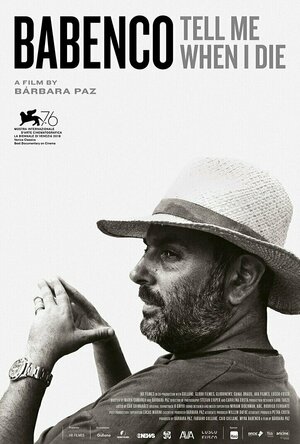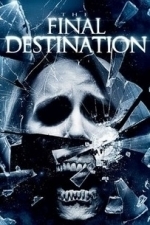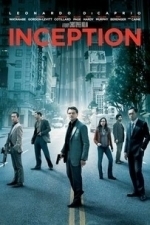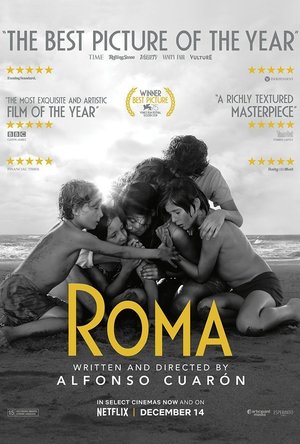Search
Search results
LoganCrews (2861 KP) rated The Final Destination (2009) in Movies
Oct 22, 2020
Rigorously uncared for - chock full of series-worst dirt acting, bullshit writing, and some of the lamest CGI you'll ever encounter in a studio picture this millennium. All-around just pathetic, has an unshakable sense that this was rushed and indifferently shat out beyond belief... however... it's also only 82 minutes including credits and is quite possibly the most playful one until this point in wringing the tension out of the deaths where - outside of the eyesore opening premonition (two in a row so far for the series) - there isn't even a semi-weak one to speak of. Swift, vicious, full of trashy spills, and has Mykelti Williamson - truthfully this would be a great time if anyone involved actually gave a shit about it and it didn't come out in that 2-3 year period where everyone thought 2004-looking F-tier 3D which no question ranks among one of the worst trends in cinema was the best thing ever. The racist being dragged down the street is not only a top 20 franchise demise, but actually lands more effectively now than it ever did. Fair enough. Glad they followed up this planned series ender ( l m f a o ) with an actual movie, though.
LoganCrews (2861 KP) rated Swallow (2019) in Movies
Jan 13, 2021 (Updated Jan 13, 2021)
To be fair, I'd rather swallow a screwdriver than hang out with rich white people too. Gorgeous, nasty, and mean - but never disrespectful. Medically accurate? Perhaps not, but these seldom ever are anyhow so what can you do? In fact I found this to be much more compelling and satisfying as a depiction of obnoxious old-money business whities having their perfect little synthetic image destroyed by people who refuse to shape themselves around it than a portrait of pica. As everyone has already pointed out, Austin Stowell and in particular Haley Bennett are just astounding - easily not only her best performance to date, but the type of galvanizing role that should propel her star-power vastly beyond just Jennifer Lawrence comparisons considering that this is way better work than anything J-Law has done in years anyhow (excluding 𝘮𝘰𝘵𝘩𝘦𝘳! [I'm a simp for stupid, manic arthouse cinema I know you don't have to tell me]). Deeply, deeply, *deeply* unsettling - can pleasantly report that its reputation is as airtight as claimed. Super messy but I think that gives it more character tbh, and what an excellent use of music. A bit too on-the-nose at times but also the type of movie that's destined to be misinterpreted by morons everywhere.
Kirk Bage (1775 KP) rated Aquaman (2018) in Movies
Jan 22, 2021
There is a group of comic book fans that like this film, and defend its virtues. I could never be true friends with any of those people. One look at James Wan’s directing CV and I should have known it wouldn’t be for me. Several of the most generic “horror” movies of the last few decades, plus a pop at the diabolical Fast & Furious franchise. Oh, dear god, no! I went in with an open mind, but 30 minutes of frantic chaos (and the editing of a six year old left to punch the computer with a toy truck) later and I was completely exasperated by it all. It was all I could do to force myself to finish it, and it took three sessions to do so. The wonderful Willem Dafoe and the often glorious Nicole Kidman try hard, but look embarrassed to be involved in the main. Whereas Patrick Wilson comes across as… just weird! Jason Mamoa should have a future in either films starring The Rock or films that want to be films starring The Rock. After this travesty of cinema and wasted money it’ll take a lot to make me remotely interested. Avoid at all costs.

365 holidays. Full version.
Lifestyle and Social Networking
App
365 days a year there are national holidays held all over the world. These can be festivals and...

Babblarna Play
Entertainment and Games
App
In Babblarna Play you visit Babblarna’s cinema. You’ll meet several characters in the foyer…...
Awix (3310 KP) rated Inception (2010) in Movies
Aug 17, 2020
It's possible that Inception isn't the best film of the 21st century so far, but I'm blowed if I can think of a better candidate. What starts off looking like a slick thriller with SF trimmings - expert psycho-thief takes on one last job, breaking into a businessman's subconscious mind to implant a suggestion - turns into a dizzyingly complex and astonishingly self-assured examination of memory, reality, and the medium itself, with the execution matching the strength and ambition of the concept.
Consider: the film is based around a whole series of concepts and rules created out of whole cloth, which have to be explained to the audience. Most movies would really struggle to do only this. But Christopher Nolan not only succeeds, he uses it simply as the basis for a story rich in other layers of metaphor and emotion, while also playing with the rules of cinematic grammar and genre - the dreamscapes are implicitly likened to film narratives, with the successive levels resembling increasingly outlandish thriller sub-genres (gritty urban action, Mission Impossible, Bond) the further removed from the real world they are. But what is cinema if not a chance for people to share a dream together? Dreams as good as this one are vanishingly rare, alas.
Consider: the film is based around a whole series of concepts and rules created out of whole cloth, which have to be explained to the audience. Most movies would really struggle to do only this. But Christopher Nolan not only succeeds, he uses it simply as the basis for a story rich in other layers of metaphor and emotion, while also playing with the rules of cinematic grammar and genre - the dreamscapes are implicitly likened to film narratives, with the successive levels resembling increasingly outlandish thriller sub-genres (gritty urban action, Mission Impossible, Bond) the further removed from the real world they are. But what is cinema if not a chance for people to share a dream together? Dreams as good as this one are vanishingly rare, alas.

Babenco: Alguém Tem que Ouvir o Coração e Dizer Parou (2019)
Movie
"I have already lived my death and now all that is left is to make a film about it." So said the...
LeftSideCut (3776 KP) rated Lake Placid: The Final Chapter (2012) in Movies
Mar 22, 2022
Lake Placid 4 is straight up wild. It starts with Yancy Butler asking a crocodile if "they really wanna do this" before fighting it. That's where we're at. There's a bit where a group of people see a huge crocodile coming for them so they jump in a 4x4 and drive insanely fast away from it, looking back to make sure they're getting away. I though to myself "why are they looking, there's no way a crocodile is keeping up with them, stupid ass" but no, the crocodile is galloping like a fucking horse at the same speed behind them. There's another part where a dude gets torn apart by baby crocodiles like a school of piranhas or some shit. None of it makes sense but fuck it, who even cares. The CGI somehow manages to be better and worse than the last one. Robert Englund is chewing up the scenery whenever he's on screen. I feel like I'm going mad because I have low key enjoyed all of the trash sequels so far.
Some people say that Citizen Kane is the biggest masterpiece of cinema ever put out there. I argue that it's Lake Placid: The Final Chapter (even though there are two more to go *chefs kiss*)
Some people say that Citizen Kane is the biggest masterpiece of cinema ever put out there. I argue that it's Lake Placid: The Final Chapter (even though there are two more to go *chefs kiss*)
Bob Mann (459 KP) rated Roma (2018) in Movies
Sep 28, 2021
“Siempre estamos solas”
Alfonso Cuarón‘s “Roma” has been lauded with praise and award’s hype, and I must admit to have been a little bit snooty about it. A black-and-white Spanish language film with subtitles that – to be honest – looks a bit dreary: can it really be that good? Having now (finally) seen it on Netflix I can confirm that’s a big YES from my point of view. It’s a novelty of a glacially slow film that grips like a vice.
A primer on 70’s Mexican History.
This is a film about ordinary life set against tumultuous times. Set in the Colonia Roma district of Mexico City (if you were puzzled, as I was, where the title came from) it is an “Upstairs, Downstairs” tale of Cleo (Yalitza Aparicio), a maid and nanny to a middle class family in the early 70’s.
There are two intertwined stories here: Cleo’s personal story and that of the family background in which she works.
Cleo has a pleasant enough life working as partners in crime in the household with Adela (Nancy García García). Life is about getting the work done (well, more of less), keeping the four children happy – to who she is devoted – and scraping enough by to spend her downtime with her martial arts boyfriend Ramón (José Manuel Guerrero Mendoza).
Meanwhile the lady of the house Senora Sofia (Marina de Tavira) has an affluent and cosseted lifestyle amid her loving family.
But times are about to change for all of the players, as events – not just the events of the ‘Mexican Dirty War’ of 1971 going on in the background – transpire to change all their lives forever.
A masterclass in framing.
It’s criminal that I wasn’t able to get to see this in the cinema. Since every frame of this movie is a masterpiece of detail. There is just so much going on that your eyes dart this way and that, and you could probably watch it five times and see more. Even the opening titles are mesmerising, as the cobbled floor becomes a screen and an airliner lazily flies across it.
Even major action sequences, that other directors would fill the screen with (“Do you KNOW how much this scene is costing for God’s sake??”), are seen as they would typically be seen in real life – second hand, from a place of hiding. This is typified by the depiction of the Corpus Christi Massacre of June ’71, where the military, and more controversially the elite El Halconazo (The Hawks) of the Mexican army, turned on a student protest. Most of the action is seen as glimpses through the windows by the characters during a shopping trip to the second floor of a department store. How this was enacted and directed is a mystery to me, but it works just brilliantly.
A masterclass in pacing and panning.
One of Cuarón’s trademarks is the long take (think “Children of Men”) and here he (literally!) goes to town with the technique. An incredibly impressive scene has Cleo and Adela running through the streets of the City to meet their lovers at the cinema. It’s a continuous pan that again defies belief in the brilliance of its execution.
Even the mundane act of Cleo tidying up the apartment is done with a glorious slow pan around the room. Some of this panning is done to set the mood for the film (“Get settled in… this is going to be a long haul”) but others manage to evoke a sense of rising dread, an example at the beach being a brilliant case in point.
The cinematography was supposed to have been done by the great Emmanuel Lubezki, but he was unavailable so Cuarón did it himself! And it’s quite brilliant. So, that’s a lesson learned then that will reduce the budget for next time!
A personal story.
Cuarón wrote the script. Of course he did… it’s his story! He’s the same age as I am, so was nine years old for the autobiographical events featured in the film (he is the kid who gets punished for eavesdropping). Numerous aspects of the film are from his own childhood, including the fact that his younger brother kept spookily coming out with things that he’d done in his past lives! It’s a painful true story of his upbringing and of the life of Liboria Rodríguez: “Libo” to whom the film is dedicated.
Where the script is delightful is in never destroying the mood with lengthy exposition. Both of the key stories evolve slowly and only gradually do you work out what’s really going on. This is grown-up cinema at its finest.
It’s also a love letter from Cuarón to the cinema of his youth, a passion that sparked his eventual career. We see a number of trips to the local fleapit, and in one cute scene we seen a clip from the Gregory Peck space epic “Marooned”: the film that inspired Cuarón’s own masterpiece “Gravity“.
A naturalistic cast.
Casting a large proportion of the cast from unknowns feels like a great risk, but its a risk that pays off handsomely, particularly in the case of Yalitza Aparicio, who is breathtakingly naturalistic. Cuarón withheld the script from his cast, so some of the “acting” is not acting at all – specifically a gruelling and heartrending scene featuring Cleo later in the film. That’s real and raw emotion on the screen.
Marina de Tavira, although an actress with a track record, is also mightily impressive as the beleaguered and troubled wife.
Final Thoughts.
This is a masterpiece, and thoroughly deserves the “Best Picture” awards it has been getting. It’s certainly my odds on favourite, as well as being my pick, for the Oscar on Sunday. Will it be for everyone? Probably not.
There are some scenes which feel slightly ostentatious. A forest fire scene is brilliantly done (“Put out the small fires kids”), but then a guy in a monster suit pulls off his head-wear and starts singing a long and mournful song. Sorry?
There will also be many I suspect who will find the leisurely pace of the film excruciating; “JUST GET ON WITH IT” I hear them yelling at the screen. But if you give it the time and let it soak in, then you WILL be moved and you WILL remember the film long after you’ve seen it.
I remain cross however that this was released through Netflix. This is a film that deserves a full and widespread cinema release in 70mm format. It’s like taking an iPhone snap of the Mona Lisa and putting the phone on display instead.
A primer on 70’s Mexican History.
This is a film about ordinary life set against tumultuous times. Set in the Colonia Roma district of Mexico City (if you were puzzled, as I was, where the title came from) it is an “Upstairs, Downstairs” tale of Cleo (Yalitza Aparicio), a maid and nanny to a middle class family in the early 70’s.
There are two intertwined stories here: Cleo’s personal story and that of the family background in which she works.
Cleo has a pleasant enough life working as partners in crime in the household with Adela (Nancy García García). Life is about getting the work done (well, more of less), keeping the four children happy – to who she is devoted – and scraping enough by to spend her downtime with her martial arts boyfriend Ramón (José Manuel Guerrero Mendoza).
Meanwhile the lady of the house Senora Sofia (Marina de Tavira) has an affluent and cosseted lifestyle amid her loving family.
But times are about to change for all of the players, as events – not just the events of the ‘Mexican Dirty War’ of 1971 going on in the background – transpire to change all their lives forever.
A masterclass in framing.
It’s criminal that I wasn’t able to get to see this in the cinema. Since every frame of this movie is a masterpiece of detail. There is just so much going on that your eyes dart this way and that, and you could probably watch it five times and see more. Even the opening titles are mesmerising, as the cobbled floor becomes a screen and an airliner lazily flies across it.
Even major action sequences, that other directors would fill the screen with (“Do you KNOW how much this scene is costing for God’s sake??”), are seen as they would typically be seen in real life – second hand, from a place of hiding. This is typified by the depiction of the Corpus Christi Massacre of June ’71, where the military, and more controversially the elite El Halconazo (The Hawks) of the Mexican army, turned on a student protest. Most of the action is seen as glimpses through the windows by the characters during a shopping trip to the second floor of a department store. How this was enacted and directed is a mystery to me, but it works just brilliantly.
A masterclass in pacing and panning.
One of Cuarón’s trademarks is the long take (think “Children of Men”) and here he (literally!) goes to town with the technique. An incredibly impressive scene has Cleo and Adela running through the streets of the City to meet their lovers at the cinema. It’s a continuous pan that again defies belief in the brilliance of its execution.
Even the mundane act of Cleo tidying up the apartment is done with a glorious slow pan around the room. Some of this panning is done to set the mood for the film (“Get settled in… this is going to be a long haul”) but others manage to evoke a sense of rising dread, an example at the beach being a brilliant case in point.
The cinematography was supposed to have been done by the great Emmanuel Lubezki, but he was unavailable so Cuarón did it himself! And it’s quite brilliant. So, that’s a lesson learned then that will reduce the budget for next time!
A personal story.
Cuarón wrote the script. Of course he did… it’s his story! He’s the same age as I am, so was nine years old for the autobiographical events featured in the film (he is the kid who gets punished for eavesdropping). Numerous aspects of the film are from his own childhood, including the fact that his younger brother kept spookily coming out with things that he’d done in his past lives! It’s a painful true story of his upbringing and of the life of Liboria Rodríguez: “Libo” to whom the film is dedicated.
Where the script is delightful is in never destroying the mood with lengthy exposition. Both of the key stories evolve slowly and only gradually do you work out what’s really going on. This is grown-up cinema at its finest.
It’s also a love letter from Cuarón to the cinema of his youth, a passion that sparked his eventual career. We see a number of trips to the local fleapit, and in one cute scene we seen a clip from the Gregory Peck space epic “Marooned”: the film that inspired Cuarón’s own masterpiece “Gravity“.
A naturalistic cast.
Casting a large proportion of the cast from unknowns feels like a great risk, but its a risk that pays off handsomely, particularly in the case of Yalitza Aparicio, who is breathtakingly naturalistic. Cuarón withheld the script from his cast, so some of the “acting” is not acting at all – specifically a gruelling and heartrending scene featuring Cleo later in the film. That’s real and raw emotion on the screen.
Marina de Tavira, although an actress with a track record, is also mightily impressive as the beleaguered and troubled wife.
Final Thoughts.
This is a masterpiece, and thoroughly deserves the “Best Picture” awards it has been getting. It’s certainly my odds on favourite, as well as being my pick, for the Oscar on Sunday. Will it be for everyone? Probably not.
There are some scenes which feel slightly ostentatious. A forest fire scene is brilliantly done (“Put out the small fires kids”), but then a guy in a monster suit pulls off his head-wear and starts singing a long and mournful song. Sorry?
There will also be many I suspect who will find the leisurely pace of the film excruciating; “JUST GET ON WITH IT” I hear them yelling at the screen. But if you give it the time and let it soak in, then you WILL be moved and you WILL remember the film long after you’ve seen it.
I remain cross however that this was released through Netflix. This is a film that deserves a full and widespread cinema release in 70mm format. It’s like taking an iPhone snap of the Mona Lisa and putting the phone on display instead.






